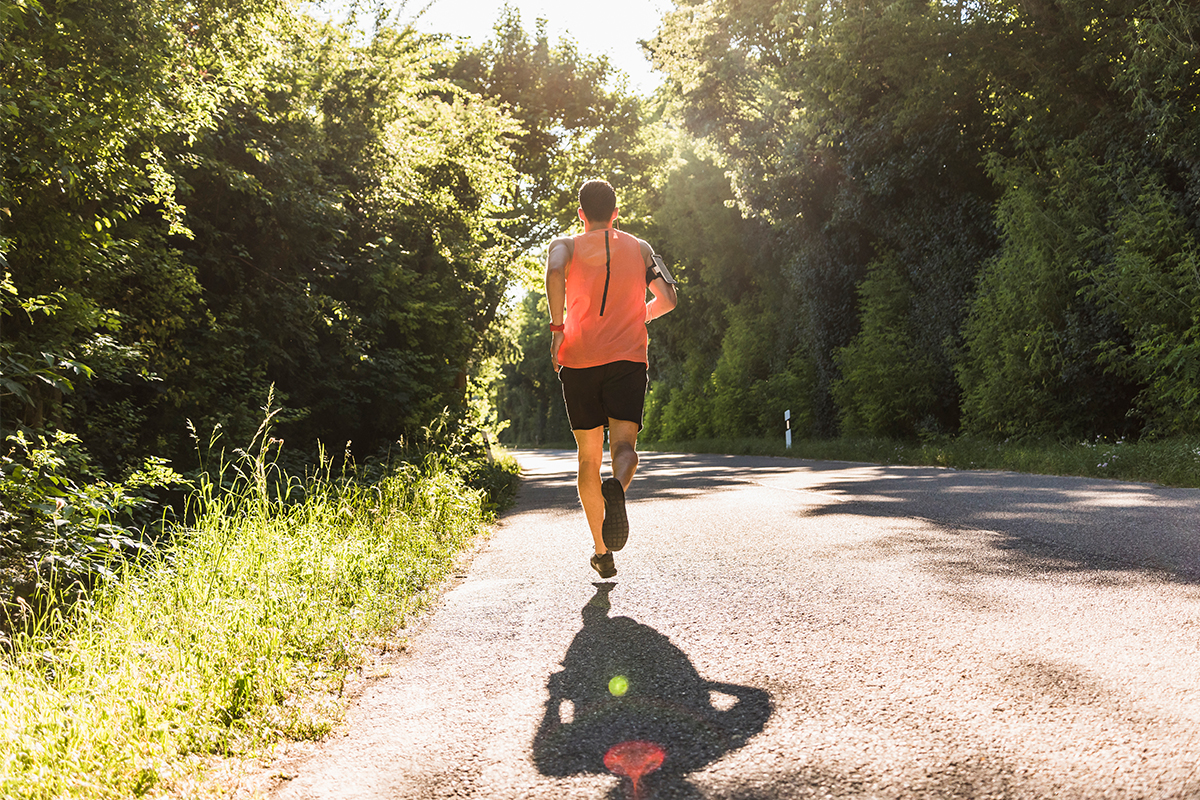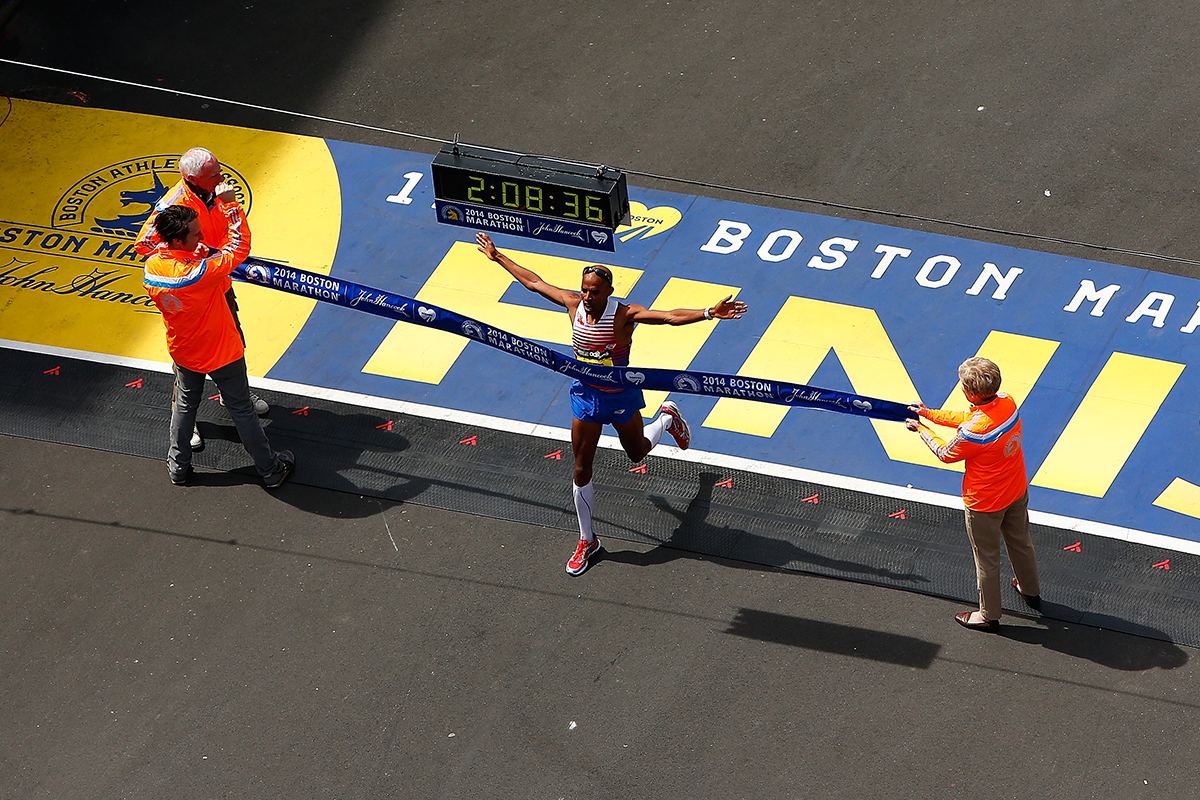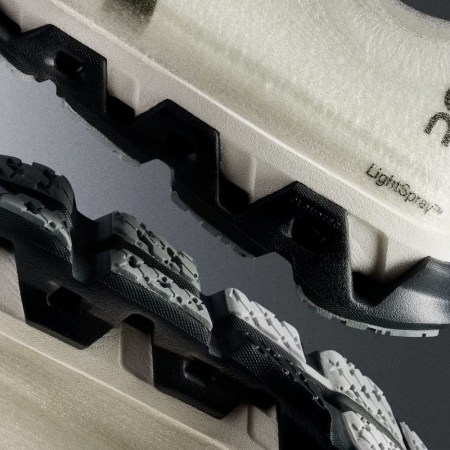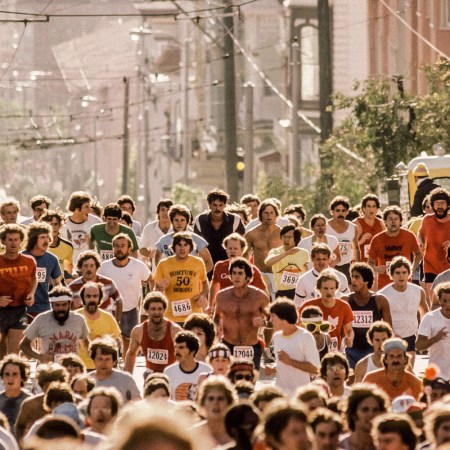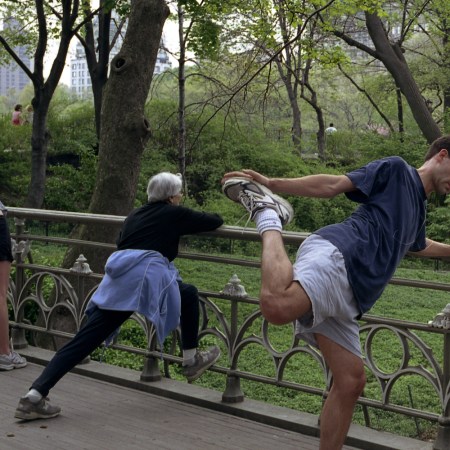Runners will listen to just about anything to get through a marathon.
I have friends who will gladly crank Harry Potter audiobooks, entire seasons of true crime podcasts and live YouTube concerts to propel them through 26.2 miles. For most, streaming something into the ears is intended as distraction. For others, it could even be considered a PED.
More often than not, these people are clutching their phones while they run. Unless you have a smartwatch — or more specifically, a smartwatch that can handle stream more than a couple hours of content at a time — you’re going to need your iPhone somewhere on your person during training sessions and races.
I’m a music-runner, and when I first picked up the activity again, I “hacked” my phone setup to be conducive for all manner of workouts, up to extremely speedy 200-meter workouts. I intentionally got the smallest, thinnest option available when it was time for my mobile upgrade, and picked up a grippy, waterproof case that would stay snug in my hand. I’ve never dropped my phone while running. Up until recently, I thought I had it all figured out.
Only, the micro-habit has started to catch up to me. As a writer, my posture could always be better; but over the last few months I’ve noticed a different sort of slump in my shoulders. I’m not just hunching forward — I’m a bit tilted to one side. My right side. Go figure: I hold my phone in my right hand while running.
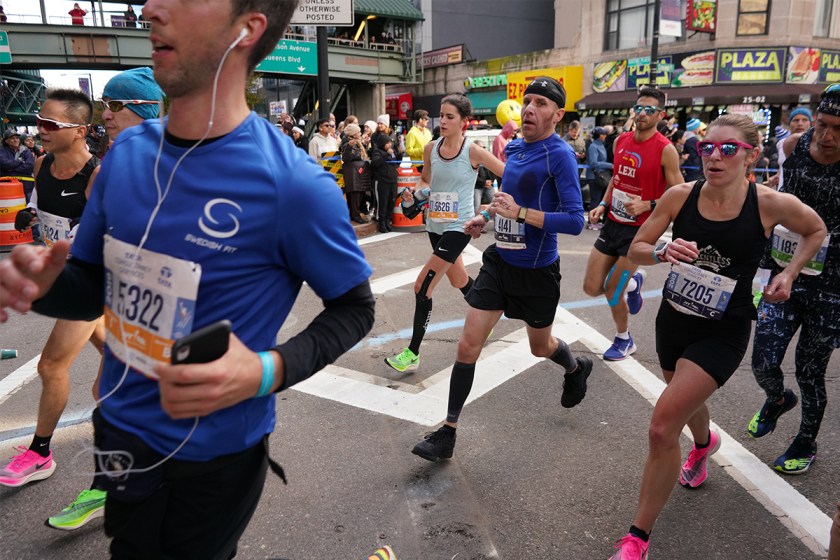
As someone who’s run 950 miles since the pandemic started, and has no plans to slow down any time soon, I can’t really afford to ignore a situation where improper mechanics might be creating issues in the body. And neither can you — flashpoint injuries are inevitable sometimes, but repetition imbalances can be prevented.
Consider, for instance, the plight of many “overhead athletes” (sports involving overhead motions, like tennis, baseball, and volleyball). According to one study, “the dominant-side scapula of the overhead athletes [becomes] more internally rotated and anteriorly tilted,” due to the same serves, pitches and spikes being practiced over and over again. It’s not what you want, exactly, and definitely not once you’ve retired from your sport. But at least during your tennis, baseball and volleyball career, those overhead motions have a clear purpose. A bit of postural asymmetry comes with the territory.
While running with a phone may seem like a small thing — and phones truly are small, weighing in at a little over five ounces — doing so every single day is not. Few runners are going to remember to swap their phones to their non-dominant hand at each mile marker (I’ve legitimately never run with my phone in my left hand), and keep in mind, the arm swing is an action that repeats itself hundreds of times during a single run, and thousands of times over the course of a week. It’s an imperfect analogy, but think about grabbing two dumbbells from the weight rack at the gym, and accidentally grabbing one 17.5 instead of two 15s. You’d notice the difference on the very first rep, and swap in the correct 15 right away.
We don’t swap out our phones while running because we want our tunes. We want our podcasts. Over time, we get used to the sensation of running with them — the extra weight feels negligible, which makes it even easier to ignore. What’s at stake? Repetitive strain injuries. Not only will the body start to “lean” towards the dominant side (hence the uneven shoulders), it tries to compensate by working certain muscles harder on the other side. This doesn’t just affect your upper body, either. Your entire gait — hips and legs, included — suffers when just one arm is out of whack.
All told, phone-running could limit your true speed potential over time. Proper arm mechanics is a huge sticking point for running coaches, and their main pillars generally revolve around a 80–100 degree elbow bend, swinging from the shoulders, a strong arm drive and importantly … loose, relaxed hands. Tight hands means tight shoulders, which leads to rigid, compromised form. And if you’re so focused on not dropping your phone into a storm drain, what are the chances you’re looking to incorporate more powerful arm drives into your running cadence?
Obviously, this can become a bigger issue than interfering with your next PR. Running is a dynamite pursuit for your heart health and mental health. It should be a net positive, and getting sloped shoulders out of it is a raw deal. But if you’re looking to get faster, you should probably ditch the phone, pronto. Start looking into getting a smartwatch, or picking up a running belt (that’s a fancy phrase for fanny pack) that can accommodate your cell. Many compression shorts now come with dedicated phone pockets. I would avoid the armbands, personally; they keep the phone out of your hand, but still load more weight on one side of the body.
As for addressing whatever strange shapes your shoulders have been twisted into, yoga is one of your best options. Our old friend Adriene Mishler has a great sub-series in her YouTube library called “Yoga for Runners” that helps manage common issues runners run into. But practicing even a few basic poses — low lunges, bridges, downward facing dog — will set you on your way, while bodyweight movements like shoulder blade squeezes, reverse prayer poses and shoulder raises (shrugs!) will get your torso back on track.
I’m just a few no-phone runs in, so I’ll need 10,000 arm swings or so more before I can really call it a turnaround, but the difference while out on the roads is unmistakeable. The running community loves to talk about its kinship with our hunter-gather ancestors, how we’re born long-distance runners and maybe we should run barefoot. If there’s one thing our hominid ancestors didn’t do, it was run around the plains while holding handheld supercomputers.
The Charge will help you move better, think clearer and stay in the game longer. Subscribe to our wellness newsletter today.
